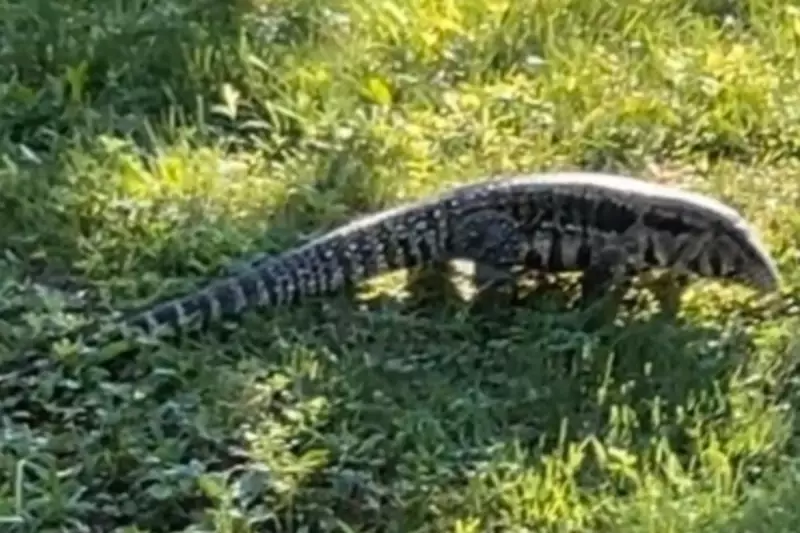
Wildlife officials in Maine have issued an unusual alert to residents of Old Town: keep an eye out for a large, exotic lizard on the loose. The missing reptile is an Argentine black and white tegu, a species native to South America, not the pine forests of New England.
The Maine Department of Inland Fisheries and Wildlife (MDIFW) confirmed the search is underway after the animal was reportedly last seen near Stillwater Avenue. The department is keen to locate the animal before it can establish itself in the local ecosystem.
What is an Argentine Tegu?
Argentine tegus are sizeable lizards, capable of growing up to four feet long. They are popular in the exotic pet trade due to their intelligence and relatively docile nature when bred in captivity. However, their potential impact as an invasive species is a significant concern for ecologists.
"They are an invasive species that can have a negative impact on native wildlife," a spokesperson for the MDIFW stated. The lizards are opportunistic omnivores, known to eat everything from fruits and vegetables to the eggs of ground-nesting birds and other small animals.
A Race Against Time
The primary goal is to capture the tegu before the colder autumn weather sets in. As reptiles, tegus are cold-blooded and would be unable to survive a Maine winter outdoors. Officials believe the animal is likely someone's escaped or released pet and are treating it as a lost animal rather than a wild threat.
Residents are advised not to approach the lizard if spotted but to immediately contact the MDIFW or local animal control. While not typically aggressive towards humans, a tegu can deliver a powerful bite if it feels threatened.
The Bigger Picture: Exotic Pet Ownership
This incident in Old Town highlights the ongoing challenges and responsibilities of exotic pet ownership. The MDIFW used the opportunity to remind the public that releasing non-native animals into the wild is illegal and harmful. It can lead to the establishment of invasive species that disrupt local biodiversity and are often cruel to the animal itself, unequipped for survival in a foreign habitat.
The search continues, and officials remain hopeful the distinctive lizard will be safely recovered soon.





